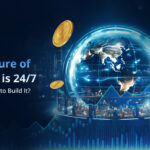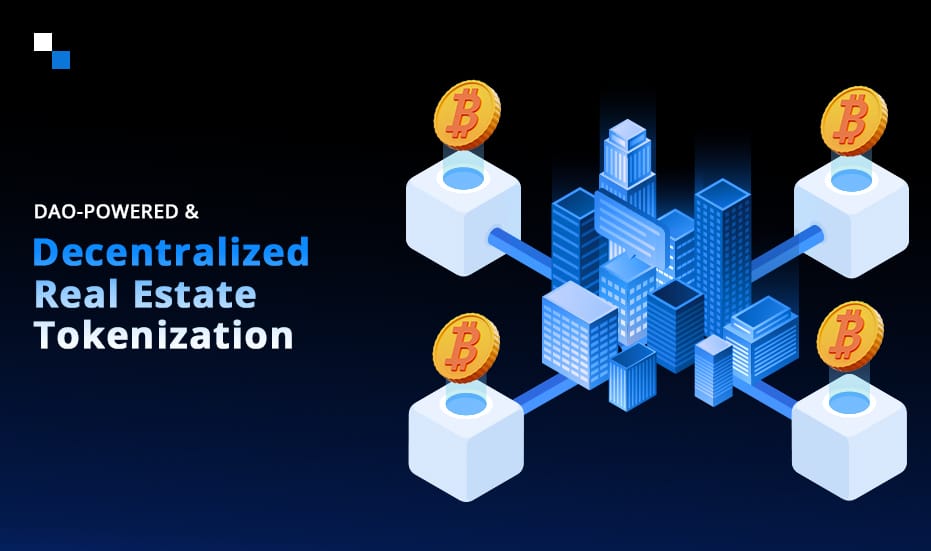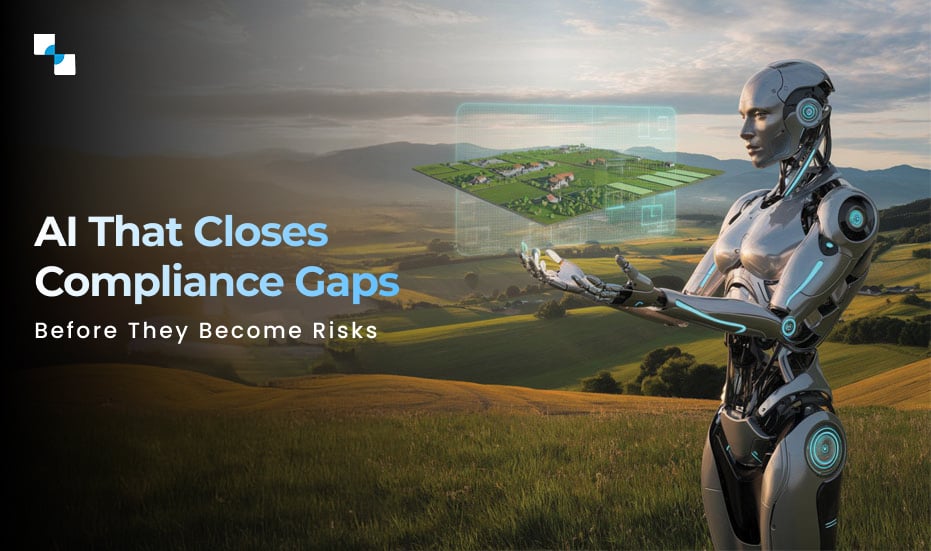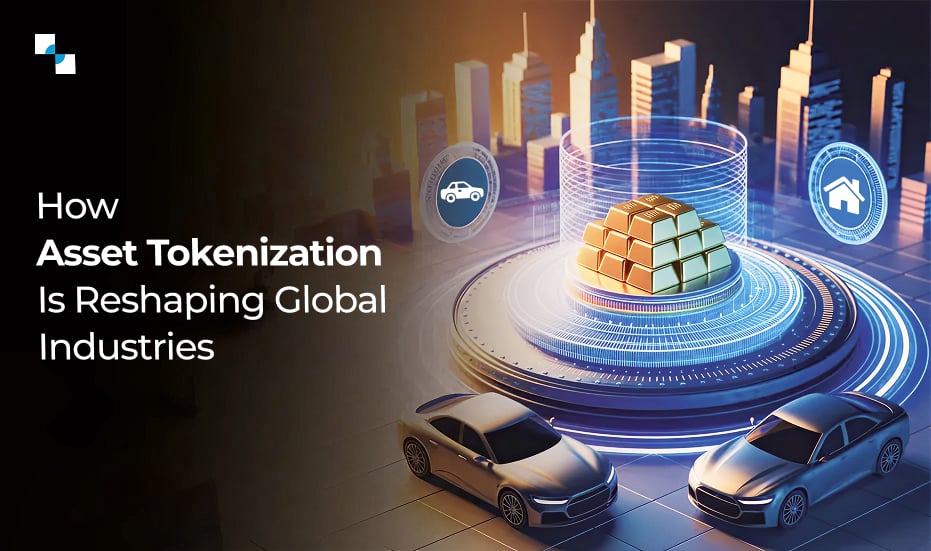Real Estate investments have always been a preferred choice for stable investments and wealth enhancement. However, for decades, they have been limited to only big investors. Not just that, the centralized approach also created bottlenecks in decision-making, opacity in operations, and inefficiencies that ultimately impact returns and satisfaction for all parties involved. The emergence of Blockchain has introduced promising solutions to this problem, such as DAOs in Real Estate Tokenization. This guide explores how integrating DAOs into real estate platforms helps to address the core inefficiencies of traditional models while opening up new possibilities for collaboration and innovation and its significance in Tokenized Properties.
Understanding DAOs and Their Working
DAOs aka Decentralized Autonomous Organizations are community-led entities with no central authority. It plays a crucial role in Tokenized Real Estate Platform Development by enabling collaborative ownership, management, and governance of properties.
DOAs operate through smart contracts with predefined rules and are governed by the members participating in the decision-making process. They function through several key components:
- Smart Contracts: These self-executing contracts contain the rules of the organization. Once deployed on a blockchain, they automatically enforce these rules without requiring intermediaries.
- Governance Tokens: Members hold tokens that give them voting rights proportional to their holdings. Importantly, these tokens aren’t necessarily investment vehicles but rather mechanisms for participation in governance.
- Voting Mechanisms: Proposals are submitted, discussed, and voted on by token holders, with decisions being executed automatically once approved.
Real-world examples demonstrate the potential of this approach. MakerDAO governs the DAI stablecoin with over $8 billion in assets. GitcoinDAO coordinates funding for open-source software development. ConstitutionDAO, though unsuccessful in its bid to purchase a copy of the U.S. Constitution demonstrated the ability to rapidly organize thousands of contributors around a common goal.
Why Should Tokenized Real Estate Platforms Integrate DAOs?
For Tokenized real estate platform Development, it is crucial to integrate DAOs to differentiate themselves in an increasingly competitive landscape. The integration can offer compelling benefits including:
Enhanced Transparency
Real estate has long struggled with opacity. Who makes decisions? Based on what information? With what incentives? Smart contracts that govern DAOs provide unprecedented transparency by encoding rules and executing them automatically and immutably on a blockchain. Every proposal, vote, and financial transaction is recorded on-chain, and visible to all participants.
For fintech companies seeking to disrupt traditional real estate finance, this transparency creates trust with investors who might otherwise be skeptical of new platforms. For brokerages targeting millennial and Gen Z buyers, it addresses their demand for openness and accountability.
Decentralized Decision-Making
Traditional real estate decisions often flow from top to bottom, with little input from those most affected. A property management company decides when to perform maintenance. An asset manager determines when to sell a property. Tenants and smaller investors have minimal say. DAO integration in Tokenized Real Estate Investment Models changes this by enabling all stakeholders to participate in governance proportional to their stake or role.
- In residential properties, this might mean tenants voting on amenity improvements or maintenance priorities.
- In commercial real estate, it could mean fractional owners collectively deciding on leasing strategies or capital improvements.
This democratic approach particularly appeals to community-focused real estate platforms and those targeting “broken” markets where traditional governance has failed stakeholders.
Automated Compliance
Real estate compliance is complex, from zoning regulations to tax reporting. Smart contracts can automate much of this compliance, executing required processes without human intervention and maintaining immutable records of compliance activities.
For property management platforms seeking efficiency gains, this automation reduces overhead and minimizes errors. Platforms targeting institutional investors DAOs can provide auditable compliance trials that reduce risk and due diligence costs.
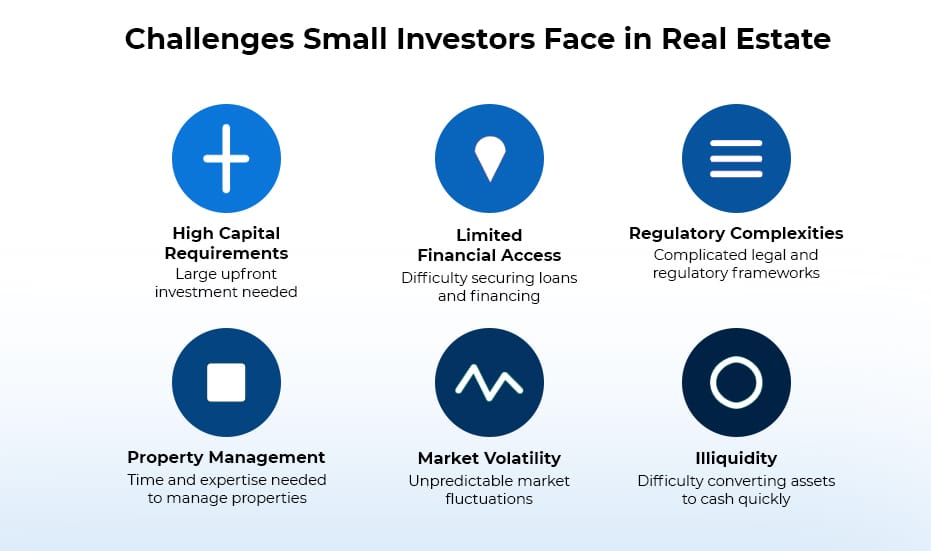
Crowdfunding Through DAOs: Making Real Estate Accessible
One of the most exciting applications of DAOs in real estate is democratizing investment. Traditionally, only wealthy investors could access lucrative property deals. Crowdfunding through DAOs changes that by enabling:
- Micro-Investments: Individuals can contribute as little as a few hundred dollars to real estate projects, breaking down financial barriers. Millennials and gig economy workers, previously excluded from real estate investments, now have a chance to build wealth.
- Community-Driven Development: Local communities can fund and manage development projects, ensuring new properties align with their needs rather than the interests of outside developers.
- Global Capital for Local Projects: Real Estate Crowdfunding connects local real estate opportunities with investors worldwide, helping underfunded projects access capital.
- Transparent Fund Deployment: Unlike traditional development funds, DAO treasuries in Real Estate ensure capital is used efficiently. Smart contracts release funds in stages based on verified project milestones, reducing financial mismanagement.
Success Story: CityDAO
CityDAO offers an early glimpse into decentralized real estate governance. The organization purchased land in Wyoming and allowed members to vote on its development through a DAO. While still evolving, CityDAO proves that collective ownership and governance of physical assets is possible.
How to Build a DAO-Integrated Real Estate Platform?
Building a DAO-integrated Real Estate platform requires careful consideration of technology, governance models, and regulatory compliance.
1. Tech Stack Considerations
The blockchain you select as your foundation matters significantly:
- Ethereum: The most established ecosystem for DAOs with robust tooling, but higher gas fees make it better suited for high-value real estate decisions rather than day-to-day operations.
- Polygon: An Ethereum sidechain offering lower fees and faster transactions, making it suitable for more frequent governance activities.
- Arbitrum: A Layer 2 solution on Ethereum that maintains security while reducing costs, ideal for platforms seeking a balance between security and affordability.
Beyond the blockchain itself, several development frameworks facilitate DAO creation:
- Aragon: Offers out-of-the-box DAO templates with customizable governance.
- Colony: Focuses on meritocratic governance, potentially useful for service provider selection in property management.
- DAOstack: Provides scalable governance solutions for complex decision-making.
For the front end, prioritize intuitive interfaces that abstract away blockchain complexity. Users shouldn’t need to understand gas fees or wallet management to participate in governance.
2. Governance Models
- Token-weighted voting: Simple but potentially concentrates power with large token holders.
- Quadratic voting: Gives users voting power proportional to the square root of their tokens, reducing large holder dominance – useful for community-oriented real estate platforms.
- Holographic consensus: Enables minority group decision-making for specialized issues – valuable for addressing concerns of specific stakeholder groups.
- Delegated governance: Allows token holders to delegate voting rights to representatives they trust, reducing participation barriers.
Many successful DAOs implement multi-tier structures where routine decisions are handled by specialized sub-DAOs while major decisions require broader participation.
3. On-Chain vs Off-Chain Decisions
Not every decision belongs on the blockchain. On-chain decisions benefit from automation and immutability but incur transaction costs and can be inflexible.
Consider putting these decisions on-chain for the investors:
- Major financial allocations
- Changes to governance rules
- Selection of service providers
While keeping this off-chain:
- Day-to-day operations
- Preliminary discussions
- Decisions requiring human judgment
Hybrid approaches like snapshot voting (off-chain voting with on-chain execution) can balance efficiency and security.
4. Regulatory Challenges
Real estate is highly regulated, creating challenges for decentralized governance. Address these by:
- Legal wrappers: Create traditional legal entities that interface between the DAO and the legal system.
- KYC/AML integration: Implement compliance checks for participants in regulated activities.
- Jurisdictional considerations: Structure governance to comply with regulations in relevant jurisdictions.
- Securities law compliance: Ensure governance tokens don’t constitute unregistered securities offerings.

Key Challenges & How to Overcome Them
Building a DAO-integrated real estate platform presents several challenges, below is how a Real Estate Platforms can deal with them:
1. Scalability
DAO governance can struggle to scale as membership grows. Address this by:
- Implementing Layer 2 solutions to reduce transaction costs
- Creating specialized working groups for specific decision areas
- Using reputation systems to weight participation based on expertise
- Implementing delegation to reduce governance bottlenecks
2. User Adoption
Most real estate stakeholders aren’t blockchain experts. Increase adoption by:
- Creating intuitive interfaces that hide blockchain complexity
- Providing clear education on governance processes
- Starting with hybrid models that gradually introduce decentralization
- Demonstrating clear benefits over traditional governance
3. Security
Smart contract vulnerabilities can undermine governance. Protect against this by:
- Conducting thorough security audits
- Implementing time-locks on significant actions
- Starting with limited functionality and expanding gradually
- Creating emergency response procedures for potential exploits

Future of DAO-Based Governance in Real Estate
The integration of DAOs in real estate governance is just beginning. Forward-thinking platforms should prepare for these emerging trends:
AI-Enhanced Governance
Artificial intelligence is increasingly being integrated with DAOs to analyze proposals, predict outcomes, and optimize decision-making. Real estate platforms might soon use AI to analyze market conditions and suggest governance proposals automatically.
Cross-Chain Interoperability
As different blockchains specialize in various aspects of real estate (titles on one chain, payments on another), cross-chain DAOs will emerge to coordinate governance across these systems.
Real-World Asset Integration
The line between on-chain and off-chain assets will blur as legal frameworks evolve to recognize blockchain governance. This will simplify the implementation of DAO governance for physical assets.
Governance Markets
We’ll likely see the emergence of governance specialists who build a reputation by successfully managing DAO-controlled real estate, creating a market for governance expertise.
Take Away
The integration of DAOs in Real Estate Platforms unlocks new investment and property management opportunities for Fintech and Real Estate firms. However, comes with its own set of challenges. The distribution of decision-making authority, automation of compliance, and increased transparency can make DAO-integrated Real Estate platforms deliver significant value to stakeholders across the real estate ecosystem.
Whether you’re a fintech startup looking to disrupt traditional real estate finance, a property management company seeking operational efficiencies, or a community-focused platform aiming to democratize real estate ownership, DAOs-powered Real Estate Tokenization Platform Development services offer a powerful model for achieving these objectives.
